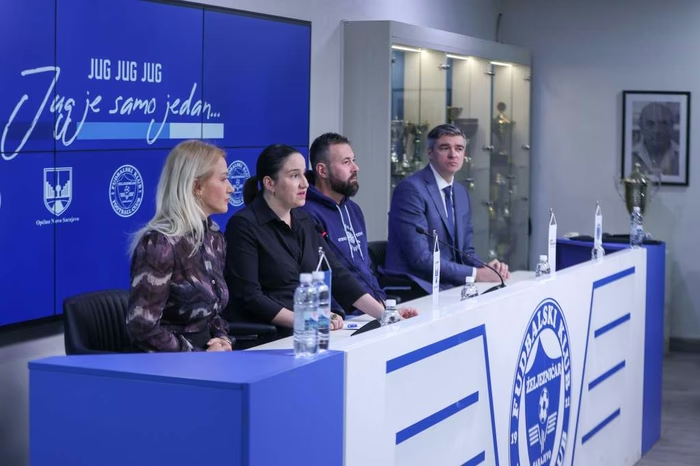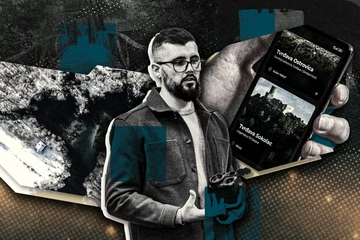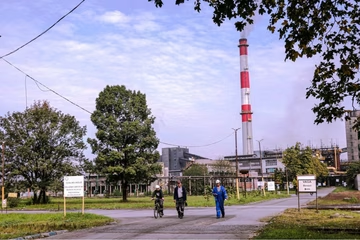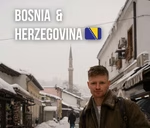
A widespread form of hate speech in BiH is the gross minimization and denial of war crimes, crimes against humanity and genocide committed during the 1992-1995 war, as established by international courts and the glorification of individuals convicted of war crimes, crimes against humanity and genocide before international and domestic courts, said the resident coordinator of the United Nations in BiH Ingrid Macdonald in an interview with FENA news agency on June 18, the International Day against Hate Speech.
Macdonald says there is no official definition of hate speech in international human rights law. However, prompted by increasingly widespread patterns of hate speech around the world, in 2019 the UN Secretary-General presented the UN Strategy and Action Plan on Hate Speech, a key reference document by which the UN supports the efforts of member states in the fight against hate speech, including Bosnia and Herzegovina.
"This Strategy defines hate speech as ‘any communication in oral and written form or behaviour, which attacks or uses derogatory or discriminatory language aimed at a person or group of persons because of who they are, in other words, on the basis of their religion, ethnic affiliation, nationality, race, skin colour, origin, gender or other identity factors," such as sexual orientation, medical condition, social status or profession", said Macdonald.
According to her, hate speech can be transmitted through any form of expression. So it can be a speech, a poem, graffiti, a mural, a photo or a video. It can be distributed online or offline.
"The difference between hate speech and free speech can be unclear or thin for some people. However, at the UN, we clearly emphasize that addressing hate speech does not mean restricting freedom of expression. Instead, the focus is on how to prevent the escalation of hate speech into something more dangerous," she pointed out.
Hate speech in BiH often targets individuals or groups based on their ethnicity, religion or gender.
Macdonald says that every day they see women, especially public figures, exposed to significant levels of hate speech and abuse, especially in the online sphere.
"Hate speech based on sexual orientation is also worrisome, as we recently had the opportunity to see homophobic comments by political leaders and beyond, calls to violence and death threats on social networks," she stressed.
"Another widespread form of hate speech in BiH is the gross minimization and denial of war crimes, crimes against humanity and genocide committed during the 1992-1995 conflict, established by international courts, and the glorification of individuals convicted of war crimes, crimes against humanity and genocide before international and domestic courts. Both forms of hate speech are prohibited by the Criminal Code of BiH. In addition to undermining international justice, it also represents the denial of the irreparable suffering of victims, survivors and their families. Such talk dehumanizes victims and perpetuates trauma and fear while planting the seeds for potential recurrence. What worries me in BiH is that some leaders, including prominent political figures, practice hate speech and repeat it for years, without any consequences. Around the world, we see that hate speech, especially when it is repeated and goes unchecked, has a profound effect on the divisions in society. Here it is often associated with historical revisionism and the undermining or stigmatization of different communities,” the UN representative said.
Asked how to deal with hate speech by politicians, especially considering the effect on the reconciliation process that is still ongoing in BiH, she stated that the fact is that BiH has laws at the state and entity levels that prohibit the most severe forms of hate speech.
"Unfortunately, we are concerned about the lack of implementation. The role of institutions entrusted with the protection of human rights, including the fight against hate speech, is crucial in order to ensure accountability and possibly reduce and prevent the repetition of hate speech and its escalation. Impunity for hate speech by politicians tends to spread and feed this phenomenon, to normalize it. Politicians have a responsibility to refrain from the use of hate speech and to condemn its use, no matter whom such speech comes from," she noted.
Kakvo je tvoje mišljenje o ovome?
Učestvuj u diskusiji ili pročitaj komentare





 Srbija
Srbija
 Hrvatska
Hrvatska
 Slovenija
Slovenija



























































